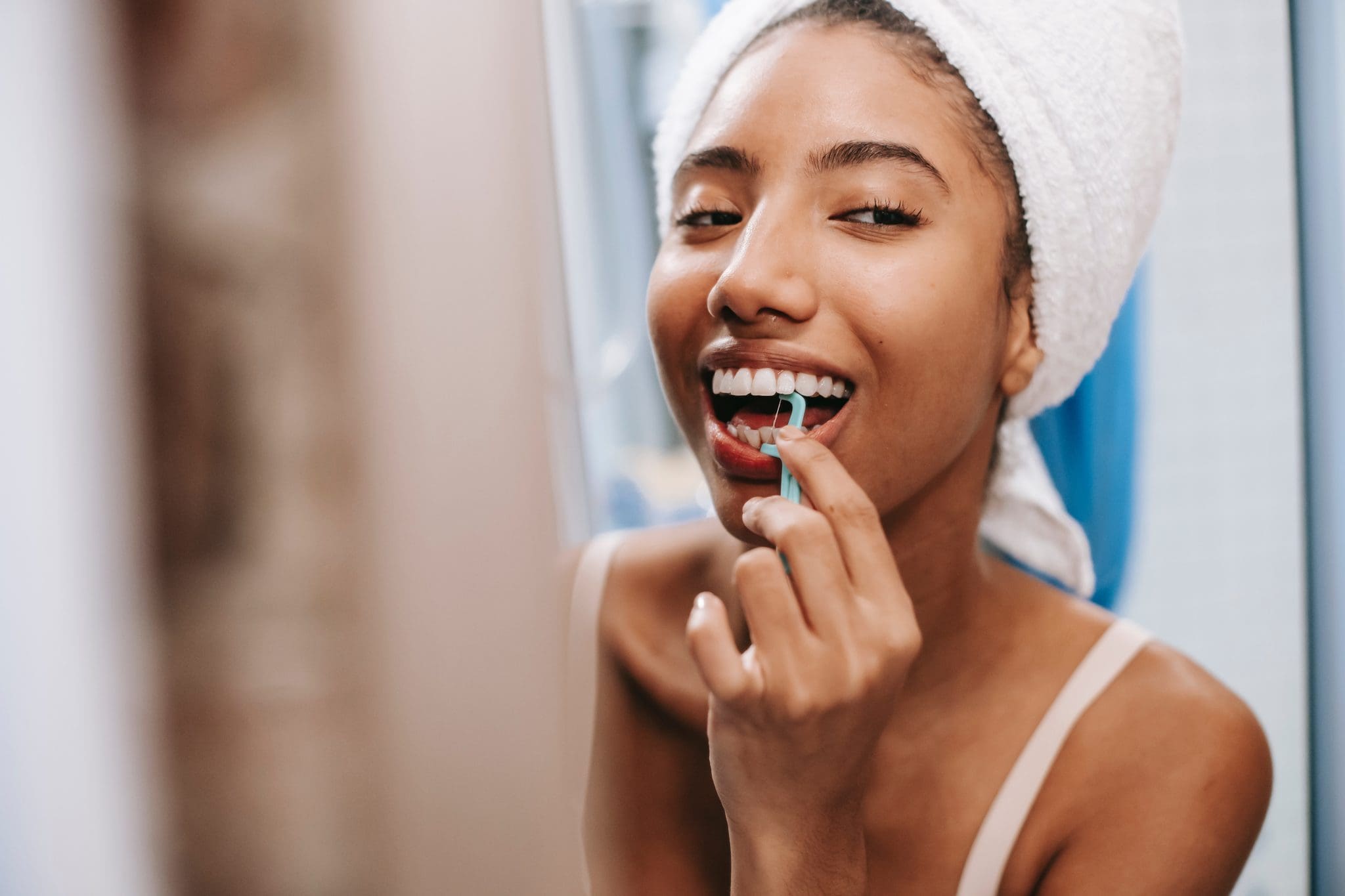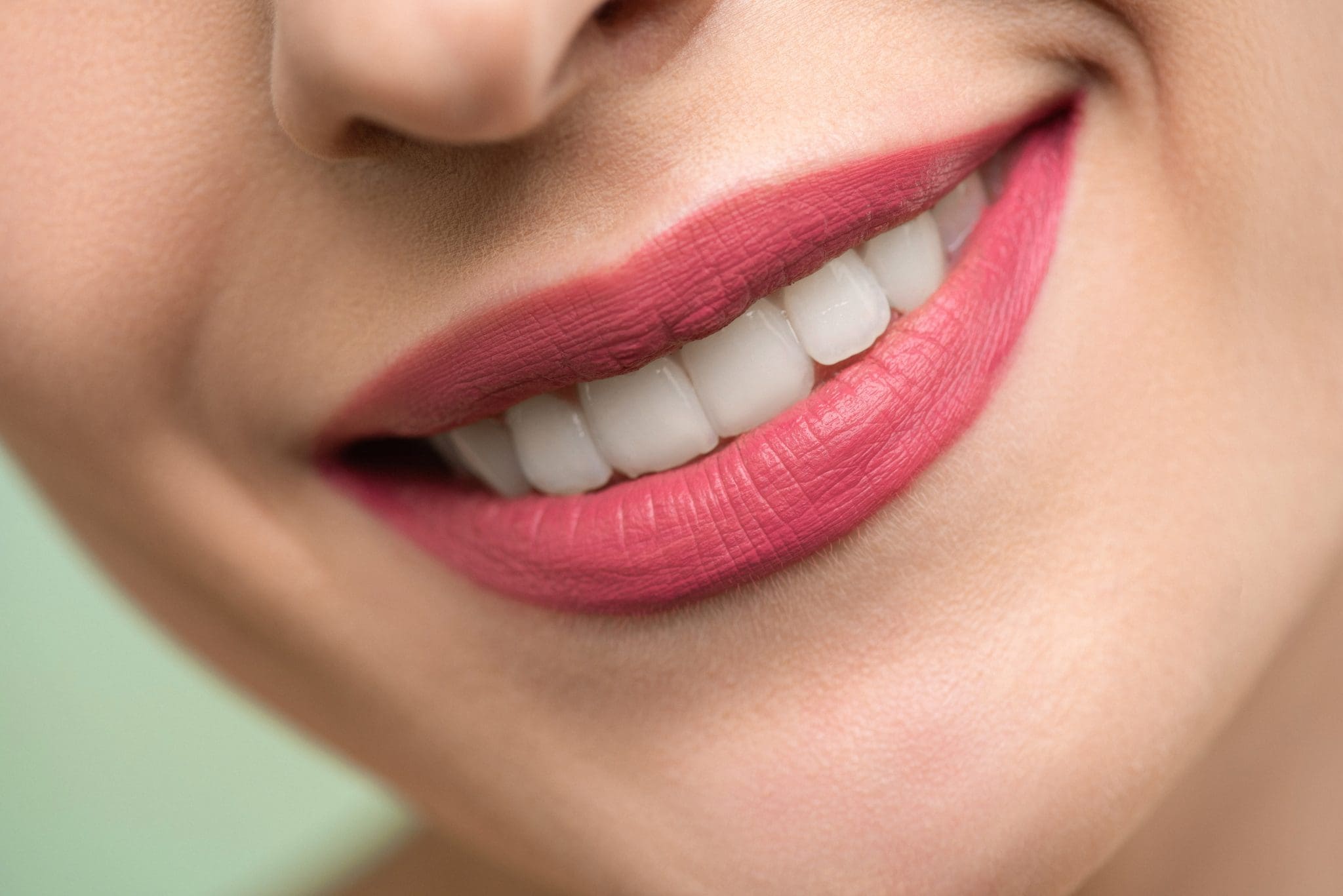Full Disclosure: Clicking on these links could mean a tiny commission for me, at no extra cost to you.
Anxiety, a widespread mental health condition, significantly impacts oral health, causing gum disease, cavities, bruxism, and dry mouth. Understanding and addressing this connection, managing anxiety, and maintaining proper oral hygiene can minimize its adverse effects on teeth and gums. Good oral health ensures a beautiful smile and contributes to your overall wellbeing too. So, whether you’re struggling with anxiety and dry mouth or looking to combat stress and boost your pearly whites, here’s everything you need to know about the anxiety and mouth connection.

The Biological Link Between Anxiety and Mouth
The strong biological link between anxiety and oral health isn’t immediately apparent. Anxiety triggers the release of cortisol, a stress hormone, as part of the body’s “fight or flight” response, weakening oral immune function and increasing inflammation, which heightens the vulnerability to infections, gum disease, and cavities.
Additionally, anxiety often exacerbates bruxism, characterized by teeth grinding, leading to tooth damage and jaw discomfort. This connection underscores how anxiety’s physiological impact significantly affects oral health. A dental health expert from The Smilist Dental and other reputable clinics can provide assistance in managing these concerns.
Anxiety Symptoms and Consequences in the Mouth
Anxiety can significantly affect our oral health, revealing connections between psychological stress and the well-being of our teeth and gums that may not be immediately apparent. Here, we explore the oral health consequences of anxiety.
- Gum Disease
Chronic anxiety weakens the oral immune system, potentially leading to various forms of gum disease, from mild gingivitis to severe periodontitis. Symptoms frequently include red, swollen gums and bleeding, highlighting the close connection between mental and oral health.
- Cavities
Anxiety can lead to neglect of oral hygiene practices, elevating the risk of developing cavities and dental decay. The consequences of anxiety extend beyond the psychological realm, directly influencing our dental well-being.
- Bruxism
Bruxism, a common consequence of anxiety, is a condition marked by teeth grinding that can damage tooth enamel, resulting in heightened sensitivity and an increased vulnerability to dental problems. It’s a striking example of how our emotional well-being can manifest in physical dental health issues.
- Dry Mouth
Anxiety and dry mouth is the result of reduced saliva production, a critical component in neutralizing acids and cleaning teeth. Without an adequate supply of saliva, individuals become more prone to tooth decay and bad breath, further emphasizing the intricate relationship between anxiety and oral health.

Managing Anxiety-Related Oral Health Issues
Managing anxiety and mouth health issues requires a multifaceted approach. First, stress management techniques like deep breathing, mindfulness, yoga, and regular exercise can help reduce anxiety, diminishing the impact of cortisol on oral health. A strict oral hygiene routine, including brushing at least twice daily and daily flossing is vital, along with regular dental check-ups to catch problems early and prevent their progression.
For those experiencing bruxism, night guards provide protection against teeth grinding during sleep. To address anxiety dry mouth, staying well-hydrated and chewing sugar-free gum for saliva stimulation is effective, and over-the-counter artificial saliva products are available.
Seeking professional help from mental health and dental professionals is essential if anxiety significantly affects your oral health, as they can offer tailored guidance and treatment.
- Stress Management
To reduce anxiety’s effect on oral health, it’s vital to employ stress management techniques. Practices such as deep breathing exercises, mindfulness meditation, yoga, and regular physical exercise can help alleviate anxiety, thereby decreasing the influence of cortisol on your oral health.
Try Now: Get A Free Month of Online Breathwork Classes
- Oral Hygiene
Maintaining a strict oral hygiene routine is crucial. This involves brushing your teeth at least twice a day and daily flossing to eliminate food particles and plaque. Regular dental check-ups are vital as they can detect and resolve oral health issues early, averting their progression.
Buy Now: Available on Amazon
- Bruxism Management
For those who experience bruxism, which is often linked to anxiety, the use of nightguards can safeguard teeth from grinding during sleep. These custom-fitted dental appliances offer protection against enamel damage and associated discomfort.
- Saliva Stimulation
Anxiety-induced dry mouth can be combated by staying well-hydrated throughout the day. Chewing sugar-free gum or sucking on sugar-free candies can stimulate saliva production, which is crucial for neutralizing acids and cleaning teeth. Additionally, over-the-counter artificial saliva products are available to provide relief.
- Professional Help
If anxiety significantly impacts your oral health, it’s advisable to seek the assistance of mental health professionals and dental experts. Mental health professionals can offer tailored guidance and treatment to manage anxiety, while dental professionals can address specific oral health concerns, providing a holistic approach to well-being.
Incorporating these approaches into your routine can help you proactively manage the oral health consequences of anxiety, promoting a healthier mouth and overall well-being.
Preventive Measures for Anxiety and Dry Mouth, and Other Oral Issues
Preventive measures are essential in managing anxiety and dry mouth, as well as other related oral health issues proactively. Begin by understanding the connection between anxiety and oral health through education to encourage improved oral care practices.
A healthy lifestyle plays a critical role, encompassing maintaining a balanced diet, regular exercise, and ensuring sufficient sleep, as this reduces stress and benefits both mental well-being and oral health. Mindfulness practices such as meditation, deep breathing, and progressive muscle relaxation effectively diminish anxiety’s physical impact.
It’s crucial not to hesitate to seek professional support from healthcare experts who can provide tailored guidance and treatment. By being proactive in your approach to anxiety-related oral health issues, you can minimize their impact, contributing to a healthy smile and overall well-being.
Prevention is preferable to cure, so manage anxiety proactively:
- Oral Health Education: Understand the anxiety-oral health connection to motivate better oral care.
- Healthy Lifestyle: Encompasses maintaining a balanced diet, regular exercise, and ensuring sufficient sleep. This lifestyle helps reduce stress and benefits both mental well-being and oral health.
- Mindfulness Practices: Incorporate mindfulness practices like meditation, deep breathing, and progressive muscle relaxation to reduce anxiety’s physical impact.
- Professional Support: Including guidance and tailored treatment is essential and should be sought without hesitation from healthcare professionals.
When To Seek Professional Help
Managing anxiety-related oral health issues may require professional assistance in some cases. It’s important to recognize when seeking help from mental health and dental professionals is essential. Here are some situations in which professional help should be considered:
- Severe Anxiety Impact
If anxiety significantly affects your oral health to the point where it is causing severe gum disease, cavities, bruxism, or chronic dry mouth, it’s crucial to seek assistance. These issues can have long-term consequences, and professional intervention can help manage the impact on your oral health.
- Ineffective Self-Management
If your attempts to manage anxiety and dry mouth and other related oral health problems on your own are ineffective, and the issues persist or worsen, it’s time to consult with experts who can provide tailored guidance and treatment.
- Persistent Bruxism
If you experience bruxism (teeth grinding) due to anxiety, and it’s causing significant tooth damage or jaw discomfort, a dental professional can create custom nightguards to protect your teeth and alleviate the problem.
- Chronic Dry Mouth
If anxiety-induced dry mouth continues to be a problem despite self-help strategies like staying hydrated and using saliva stimulation techniques, consider consulting a dentist or oral health specialist. They can provide additional solutions and recommend over-the-counter products if necessary.
- Unmanageable Anxiety
If anxiety itself becomes unmanageable and is severely impacting your overall well-being, it’s essential to seek help from mental health professionals who can offer a range of treatment options to alleviate anxiety’s effects on both your mental and oral health.
Incorporating professional help into your oral health and anxiety management plan can make a significant difference in promoting overall well-being and maintaining a healthy smile.
The mind-mouth connection is a crucial aspect of overall health. Anxiety, a widespread mental health condition, significantly impacts oral health, causing gum disease, cavities, bruxism, and dry mouth. Understanding and addressing this connection, managing anxiety, and maintaining proper oral hygiene can minimize its adverse effects on teeth and gums. Good oral health ensures a beautiful smile and contributes to overall well-being.
This blog post contains affiliate links, but all opinions are my own. I may receive compensation from BetterHelp or other sources if you purchase products or services through the links provided on this page.








